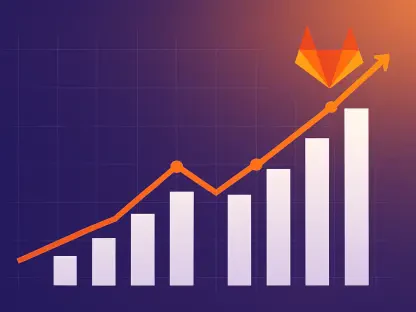A newly discovered critical vulnerability in the Laravel framework, designated as CVE-2024-52301, has raised significant concerns in the web development community. The flaw allows malicious actors to gain unauthorized access to Laravel-based applications, threatening data security and system integrity.
The Vulnerability and Its Root Cause
Understanding CVE-2024-52301
The vulnerability CVE-2024-52301 stems from Laravel’s handling of user-supplied data, particularly in configurations where the PHP directive register_argc_argv is enabled. This setting creates an opportunity for attackers to manipulate URL query strings, thereby altering the environment Laravel uses during request handling. The most troubling aspect of this flaw is its wide impact, affecting numerous Laravel versions. Specifically, affected versions include those below 6.20.45, versions ranging from 7.0.0 to those below 7.30.7, from 8.0.0 to versions below 8.83.28, from 9.0.0 to versions below 9.52.17, from 10.0.0 to versions below 10.48.23, and from 11.0.0 to versions below 11.31.0.
The Implications of the Vulnerability
If CVE-2024-52301 is exploited, it could lead to unauthorized access to sensitive data. This flaw could grant attackers the ability to escalate privileges within the affected systems, enabling them to tamper with or manipulate data, and potentially compromise additional aspects of the system. Given the widespread use of Laravel in web application development, the implications are far-reaching, potentially affecting a vast number of websites and services globally. With a CVSS score of 8.7, the severity level is high, coupled with a low attack complexity, making this flaw both dangerous and relatively simple to exploit for those with malicious intent.
Mitigation and Security Measures
Laravel’s Prompt Response
Recognizing the gravity of the situation, Laravel has responded swiftly by releasing security patches that address the vulnerability. These patches prevent the misapplication of argv values for environment detection on non-CLI SAPIs, thereby closing the security gap. Developers and system administrators are urged to update their Laravel installations to the latest versions immediately. Ensuring that all software components are up to date is a fundamental step in safeguarding against potential exploits.
Additional Recommendations for Developers
In addition to applying the security patches provided by Laravel, developers and system administrators should adhere to several best practices to enhance security. Implementing strict input validation and sanitization can help mitigate the risk of exploiting similar vulnerabilities in the future. Reviewing and strengthening PHP configurations, particularly those related to data handling and input processing, is also crucial. Deploying continuous vulnerability scanning tools can aid in the early detection of potential threats. Moreover, fostering a security-first culture within development teams ensures that security considerations are integrated into every stage of the development process.
Industry-Wide Impact and Future Vigilance
The Broader Reach of CVE-2024-52301
The discovery of CVE-2024-52301 has sent ripples through the web development community, highlighting the ongoing challenges in maintaining robust security for web applications. Laravel’s popularity means that numerous developers and organizations are directly impacted by this vulnerability. Consequently, addressing this issue promptly and effectively has become a critical priority for many. The revelation of such a significant flaw underscores the broader need for vigilance in the tech industry. It serves as a stark reminder that security must be a continuous effort, requiring regular updates, monitoring, and adherence to best practices.
Looking Ahead: Strengthening Security Protocols
Web developers working with the Laravel framework are urged to take immediate action to protect their applications. This includes applying necessary patches and updates released by the Laravel team. It’s also advisable to review and strengthen existing security measures to safeguard against this and any future vulnerabilities.
The discovery of CVE-2024-52301 serves as a stark reminder of the ever-present security challenges in the web development landscape. Staying informed and proactive is crucial for developers to ensure their applications remain secure and reliable. As the community works to address this flaw, the importance of embracing robust security practices and maintaining up-to-date systems becomes even more evident.









